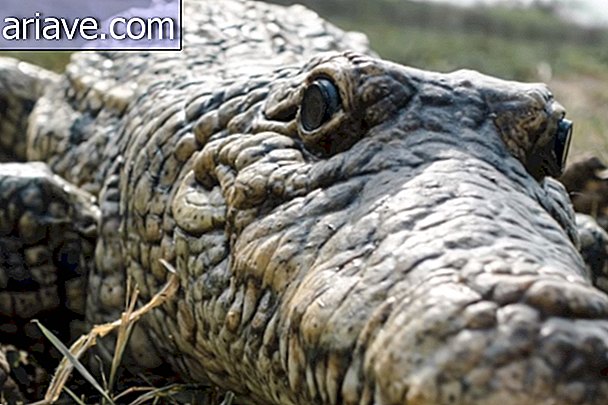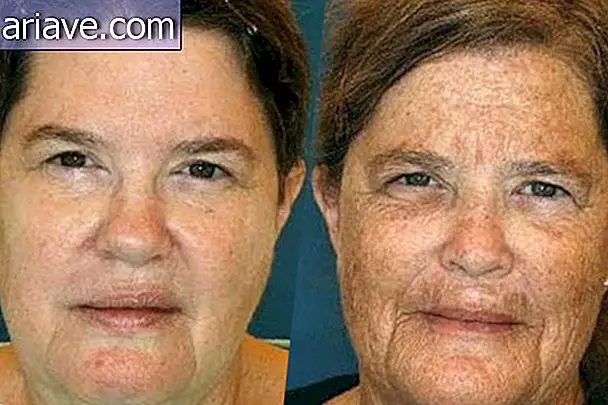5 Good Health News You May Not Know
Sometimes we get so focused on everyday problems and bad news that we don't even realize the good things are coming up. However, while there are a thousand unpleasant issues rolling around the globe, there are also a lot of people working hard and working hard to make our lives better.
In fact, even though we have only gone halfway through the year, Science has already made a number of important advances - as Fiona MacDonald of the Science Alert website pointed out in an encouraging article. Because we at Mega Curioso have selected 5 of them related to health that you can check out below:
1 - New treatments
According to estimates, one in 160 children are born with some form of autism spectrum disorder. Well, according to Fiona, in May of this year, a group of researchers announced that during clinical trials with a drug called suramin - developed about 100 years ago to treat parasitic infections and sleeping sickness - they have been able to lower their levels. symptoms of the disorder measurably.

Importantly, the trial - conducted by researchers at the University of California School of Medicine in San Diego, USA - was small and involved only 10 boys aged 5 to 14 years diagnosed with autism spectrum disorder. . However, the results, although obtained from such small sampling, are promising and may help in the development of drugs to treat these conditions.
2 - Done unpublished
According to Fiona, a team of researchers from the United States announced that they had been able to reverse the brain damage suffered by a 2-year-old girl who drowned in a swimming pool. Doctors resurrected the child 2 hours after his heart stopped beating voluntarily, and further tests showed that due to lack of oxygen in the brain, the organ eventually suffered atrophy and serious damage to the gray matter.

As a result of the injuries, the little girl lost her ability to talk, walk and respond when someone talked to her. In addition, another sequel was the emergence of involuntary movements of the face and head.
The condition was significantly reversed by intensive treatment with hyperbaric chambers. During therapies, the child was subjected to sessions in which his body was exposed to higher than normal oxygen concentrations, causing his blood to carry more of this element temporarily, promoting the recovery of tissues.
3 - Possibilities
In the middle of last week, researchers at Massachusetts Institute of Technology (MIT) announced a finding that could dramatically change the lives of those living with Alzheimer's patients or sufferers.

According to Fiona, scientists have identified a protein that acts on an enzyme that directly interferes with the process of memory formation in people with the disease and believe that one day it will be possible to create treatments focused on these two agents and reverse the memory loss of patients. Alzheimer's disease.
4 - New Weapons
You may have heard about the growing concern about increasing the resistance of some organisms to the action of antibiotics, right? According to Fiona, in reality, this is quite serious, so much so that the United Nations considers the problem a global health risk, and experts have estimated that by 2050 annually about 10 million people could die of the disease. drug resistance.

The battle against superbugs and other pathogens is far from over, but earlier this year researchers revealed the development of a molecule capable of reversing antibiotic resistance in many different organisms - a breakthrough! Also new was a "ninja" method created by an Australian scientist consisting of a star-shaped polymer that is capable of shredding six different strains of superbugs without the use of any kind of drug.
5 - Disease eradication
Smallpox, an infectious disease that killed nearly 500 million people in the 20th century alone, was the first disease eradicated by humans in the world, with its elimination announced by the World Health Organization in 1980. And, according to Fiona, another very serious problem can also be with the days numbered: polio.

Since the launch of a global polio eradication initiative in 1988, the world's incidence of polio has dropped by 99.9% thanks to vaccination campaigns. In 2016, there were only 37 cases of wild polio on the planet, and in 2017, only eight were reported.
Another agent that is about to be decimated is a parasite known as guinea worm ( Dracunculus medinensis ), which causes a disease called dracunculiasis. Although not as deadly as the smallpox virus or as serious as polio, it is a real nightmare for those who live with it.
Transmission comes from consuming water contaminated with the larvae of the worm, and the infected person will only show the first symptoms about 1 year after the infection - when a painful blister forms on the skin, usually in the lower limbs, and the worm hatches.
Research teams have been battling dracunculiasis for years, and recently a simple and effective method for dribbling worms has been developed: a sort of filter straw that prevents contamination through water. The initiative is working, as in 2015 there were only 126 reported cases in the world and, according to surveys, in May this year, there were only five known infected.











